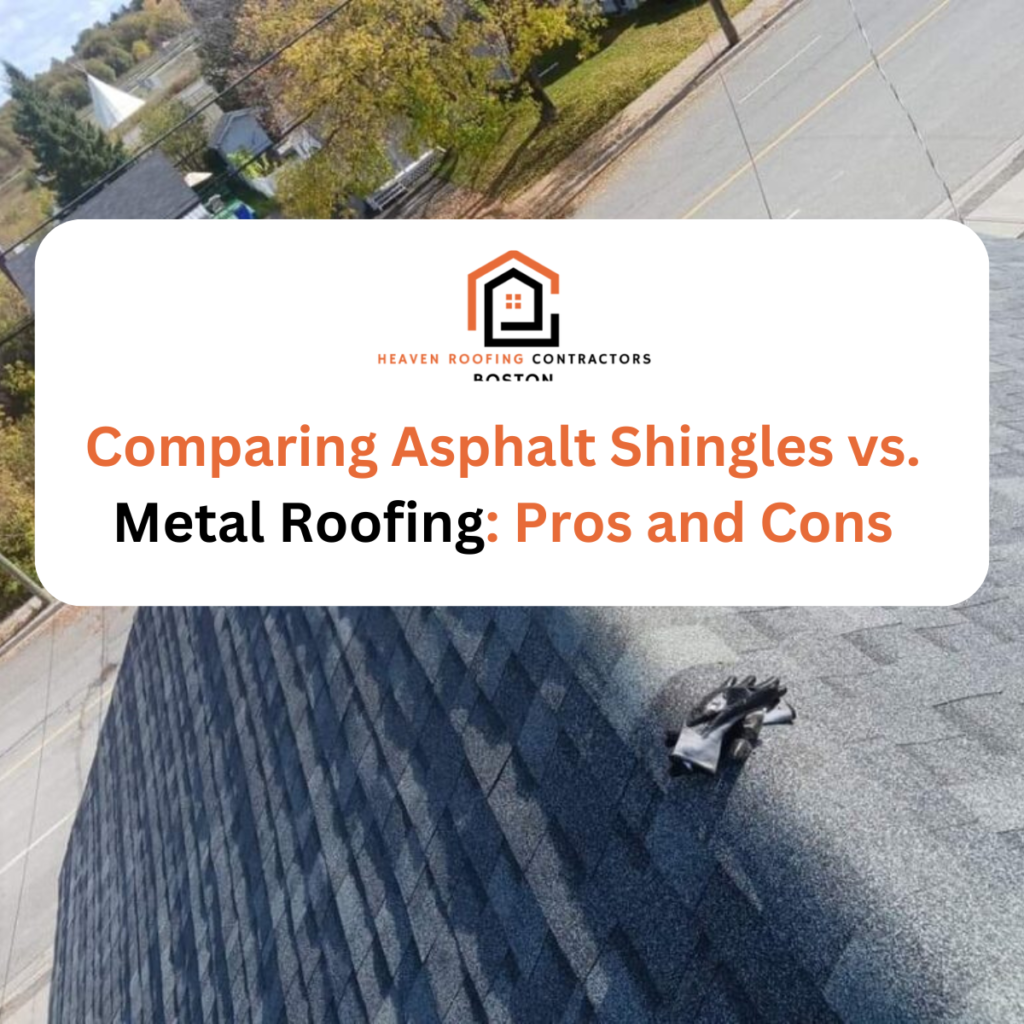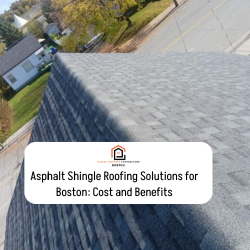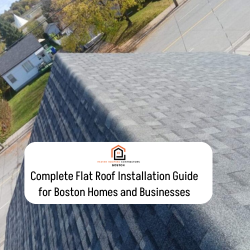When it comes to selecting a new roof for your home, the choice between asphalt shingles and metal roofing is a significant decision that can impact both the look and longevity of your roof. This comprehensive guide will compare asphalt shingles vs. metal roofing, exploring their respective pros and cons, to help you make an informed choice.
Overview of Roofing Materials
Asphalt Shingles
Asphalt shingles are one of the most popular roofing materials in North America. They are composed of a base mat, usually made from fiberglass or organic felt, which is then coated with asphalt and mineral granules. This design gives asphalt shingles their characteristic look and helps protect them from the elements.
Metal Roofing
Metal roofing is known for its durability and modern aesthetics. It comes in various forms, including standing seam metal roofs and metal shingles. Metal roofs are typically made from materials like steel, aluminum, or copper, and they offer a sleek, contemporary look.
Pros and Cons of Asphalt Shingles
Pros
- Affordability: Asphalt shingles are generally more affordable compared to metal roofing. Their lower initial cost makes them a popular choice among homeowners on a budget.
- Variety: Asphalt shingles come in a wide range of colors and styles, allowing homeowners to easily match them with their home’s exterior.
- Ease of Installation: Installing asphalt shingles is relatively straightforward, which can lead to lower labor costs. They are also easier to repair if damage occurs.
- Good Performance in Moderate Climates: Asphalt shingles perform well in moderate climates and are effective at handling typical weather conditions.
Cons
- Shorter Lifespan: Asphalt shingles have a shorter lifespan compared to metal roofs. They typically last between 15 to 30 years, depending on the quality and maintenance.
- Susceptibility to Damage: Asphalt shingles are more vulnerable to damage from high winds and severe weather. They can crack, curl, or become brittle over time.
- Maintenance Requirements: Asphalt shingles require regular maintenance to prevent issues such as algae growth and shingle deterioration. Roof maintenance is crucial to extend their lifespan.
- Energy Efficiency: Asphalt shingles absorb heat, which can increase energy costs in hot climates by raising cooling expenses.
Pros and Cons of Metal Roofing
Pros
- Durability: Metal roofs are highly durable and can last 40 to 70 years, depending on the type of metal used. They are resistant to extreme weather conditions, including high winds and hail.
- Low Maintenance: Metal roofing typically requires less maintenance compared to asphalt shingles. They do not crack or warp, and their resistance to mold and algae growth reduces upkeep.
- Energy Efficiency: Metal roofs reflect solar radiant heat, which can lower cooling costs by up to 25%. This can lead to significant energy savings over time.
- Eco-Friendly: Many metal roofing materials are made from recycled content and are themselves recyclable at the end of their lifespan, making them a more environmentally friendly option.
Cons
- Higher Initial Cost: Metal roofing generally costs more upfront than asphalt shingles. The higher initial investment can be a barrier for some homeowners.
- Noise: Metal roofs can be noisier during heavy rain or hail compared to asphalt shingles. Adding insulation can help mitigate this issue.
- Denting: While metal roofs are durable, they can be susceptible to denting from large hail or debris. This can affect the roof’s appearance and potentially its integrity.
- Complex Installation: Metal roofing installation can be more complex and may require specialized skills. This can lead to higher labor costs.
Roof Maintenance: A Key Consideration
Asphalt Shingles Maintenance
Maintaining an asphalt shingle roof involves regular inspections to check for damage or wear. Common maintenance tasks include:
- Cleaning Gutters: Keeping gutters clean prevents water damage and helps the roof last longer.
- Replacing Damaged Shingles: Promptly replacing broken or missing shingles prevents leaks and further damage.
- Checking for Moss and Algae: Removing moss and algae can prevent further deterioration of the shingles.
Metal Roofing Maintenance
Metal roofs generally require less maintenance. However, homeowners should:
- Inspect Seams and Flashing: Ensure that seams and flashing are intact to prevent leaks.
- Clean the Roof Surface: Regularly removing debris from the roof surface can prevent damage and maintain its appearance.
- Check for Rust: Periodically inspect for signs of rust, especially if the roof is made of steel.
Conclusion
Choosing between asphalt shingles vs. metal roofing involves weighing various factors, including cost, durability, maintenance, and energy efficiency. Asphalt shingles are a cost-effective option with a wide range of styles, but they may require more frequent maintenance and have a shorter lifespan. Metal roofing offers superior durability, low maintenance, and energy efficiency but comes with a higher initial cost.
Ultimately, the best choice depends on your budget, climate, and personal preferences. Consulting with a roofing contractor can also provide valuable insights tailored to your specific needs.



